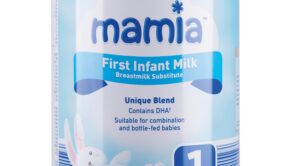Time to account for yourselves

September 2008: Business is business and all are agreed that competition is what is needed to keep dynamism in the market, but without some kind of intervention many rural communities are in danger of losing the small shops that have been an essential part of their fabric
12 September 2008
The pressure to account for ourselves these days is increasing all the time. As the talks at Government Buildings wear on between the unions and employers, the parties are forced to account for themselves and their respective demands. We look to Brian Cowen and his government to lead the way, to control public spending, and make themselves accountable for the sizeable hole in our economy – a €5 billion-sized hole. We look to our energy suppliers to account for the massive increases in their prices. Consumers, nudged along in no small way by the NCA, are looking to retailers to account for the prices they charge, often mistaking price matching for price fixing (thanks again to a certain source, we don’t doubt). And in our own daily lives we’re having to account for oursleves more and more, espeically in tighter times when wasting money is a sin, and wasting energy hurts our pockets as well as our consciences.
Well the big retailers in Ireland haven’t been slow to react, putting on a very entertaining display of ‘healthy competition’. It was “shopping bags at dawn” as one broadsheet put it, when Tesco and Lidl went at it in the dailies. Dunnes Stores and Superquinn weren’t slow to enter the fray, culminating in a climactic price-slashing weekend before the crucial back-to-school deadline.
Lidl speaks up!
Lidl’s cheeky and ever so catchy ads brought the discounter to the attention of the public and the national media in a way we had not seen before in this country. It led us to beg the questions, what do we really know about this company that has been silently expanding in the Irish market, and why does the Irish public not scrutinise its operation in the same way it has other, more boisterous players, such as Tesco? If government agencies like the NCA are prepared to champion it to consumers, aren’t there a few questions that should be asked, apart from how much does it charge? We were led to believe that ethical concerns regarding social and environmental impact, treatment of employees, food sourcing, Fairtrade etc are of equal import to value-for-money and product range, so why has this not been a part of Lidl’s corporate messaging?
In the course of our investigation, we learnt a lot about the company/companies behind the secretive operator. Most of all we learnt just how secret it all is, which, of course, is Lidl’s right. As a private company it is not obliged to share more than it has to, and it is evident it has kept much to itself. Now however, it appears Lidl is on the verge of a strategic about-face. A new website has appeared broadcasting its corporate principles, CSR initiatives and, wait for it, full contact details for its headquarters! It’s also rumoured the company is looking to hire a PR agent – if this is what it looks like, this would confirm what many a big retail operator has already discovered; that it pays to be accountable to your customers. Being held to account also forces you to live up to your promises, so we are watching this space.
The small retailer
In this issue we also examine what the future holds for small players in the Irish market. On a positive note, our meeting with Ireland’s first totally organic retailer showed us an example of ambitous entrepreneurship in a challenging economic environment. Darren Grant’s vision for an organic supermaket chain is motivated by a passion for good quality, local, seasonal food, but it also demonstrates that there are opportunites and value to be targeted in the niche and high-end segments in Ireland. It shows that there is a real way forward for the independent sector, and it just might be a very profitable way.
On a less happy note, Trevor Purtill’s insight into ‘the small shop’ in Ireland reveals that there are casualties in the aggressive world of retail. Business is business and all are agreed that competition is what is needed to keep dynamism in the market, but without some kind of intervention many rural communities are in danger of losing the small shops that have been an essential part of their fabric, to the detriment of the communities themselves.
It is for this reason that the small, local retailer must engage with its community and remind it of the essential service it provides, and essential role it plays. It is fitting on this point to mention the late JJ O’Hara, who sadly passed away last month. Anyone who knew him will remember his great energy and sense of humour, and Vincent Jennings (chief executive, CSNA) pays tribute to him. Most of all however, JJ will be remembered as someone who dedicated his career, and his life, to protecting the place of the small shop in the Irish community, and his is the example to follow.
Caroline Byrne



 Print
Print






Fans 0
Followers